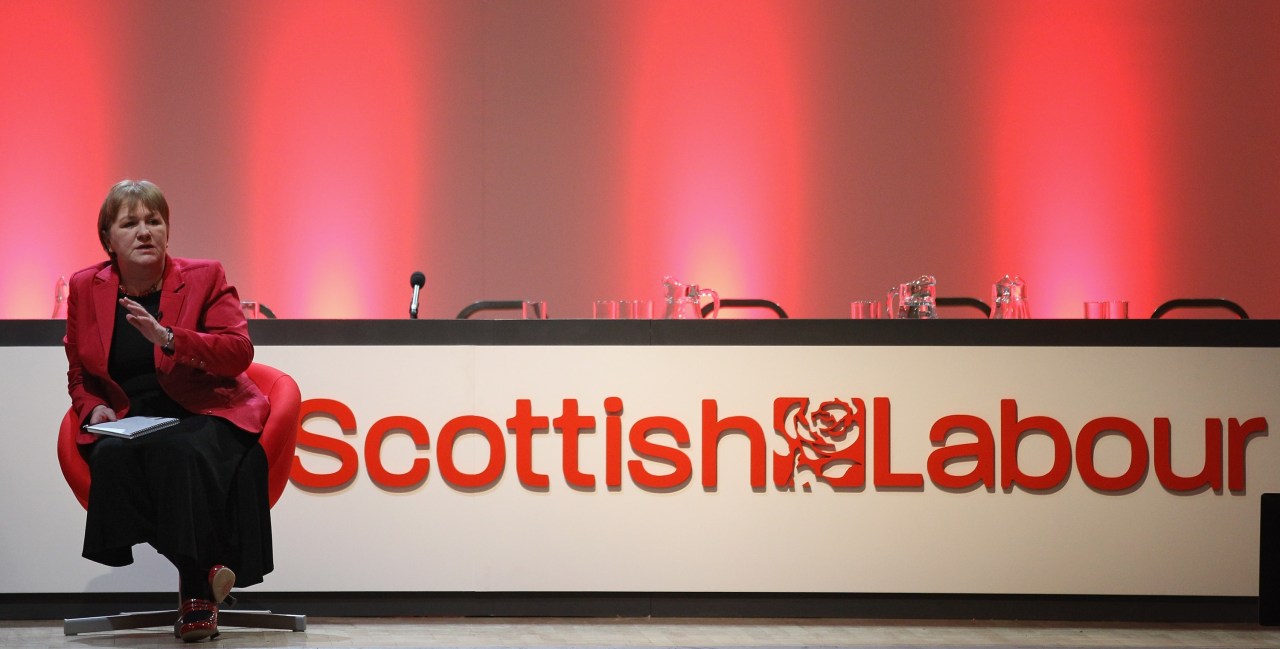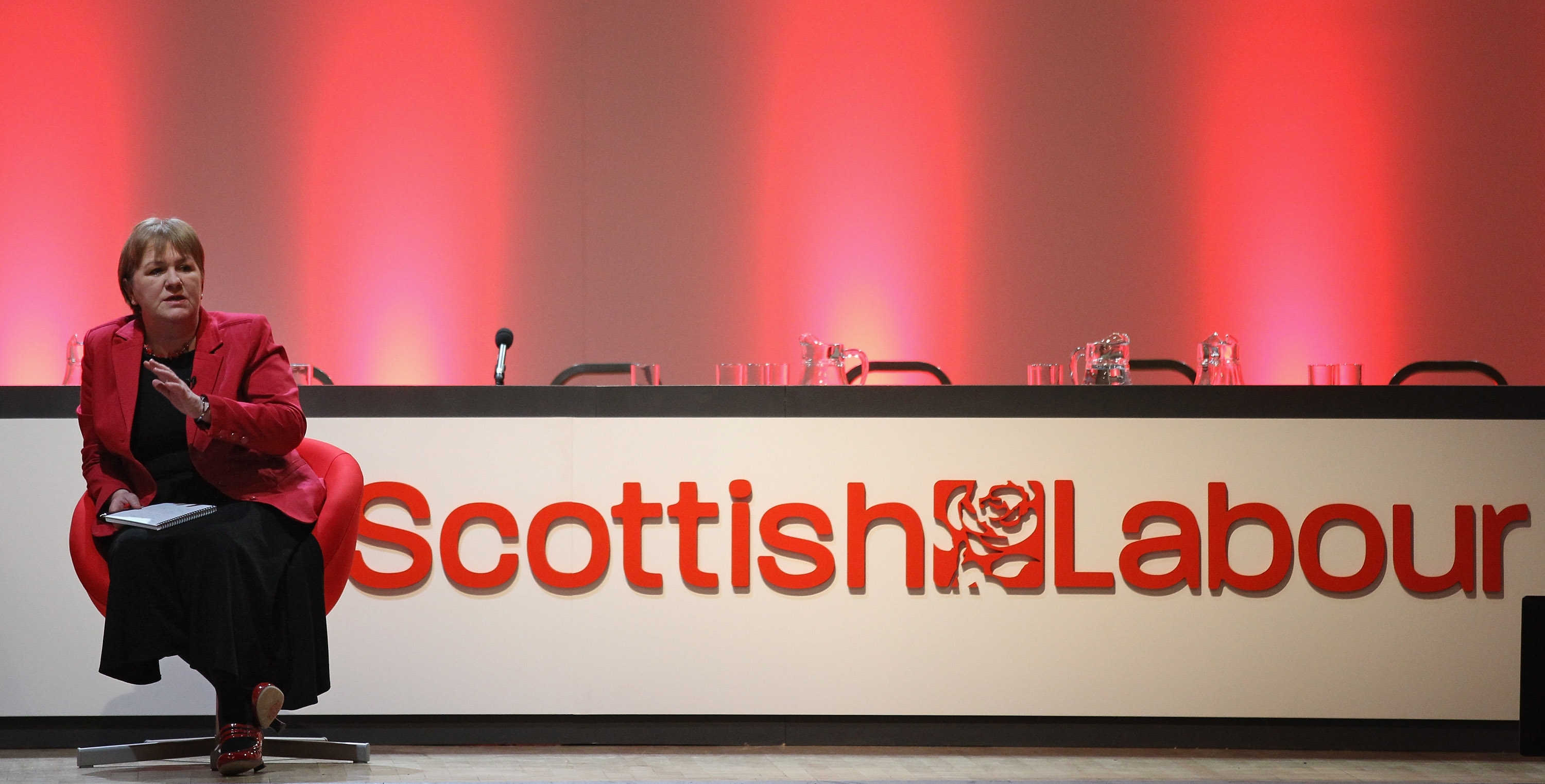Whisper it sceptically but something interesting may have happened in Scotland yesterday. It might even turn out to be an important something too. Even more remarkably, this was all because of a speech given by Johann Lamont, leader of Labour’s bedraggled Scottish troops.
I know, it all sounds too astonishing to be true. Be that as it may, Lamont’s speech in which she argued it’s time for Scotland to cease living on “the never never” and admit there will, probably, soon be a choice between raising taxes and cutting services was a rare move towards reality.
Lamont’s address was the kind of thing sarcastic types are supposed to call “brave” or “bold”. That is, mad. Actually, it was quite brave not least because Lamont must have known that Tories would probably praise what she had to say. The risk of contaminating contact with Scotland’s still-leprous tribe was high. Yet she went ahead anyway. There was a certain courage to this.
Of course, it’s depressing to think that Lamont’s central point should even be considered controversial. But this is Scotland and we cling to our own certainties here. Chief among them, apparently, our touching faith in an inexhaustible money pit.
Because this is what Lamont had to say: the pool of money is not infinite. Not now and not in the future either. In more sensible countries this would scarcely need saying far less be an occasion for controversy and even howls of betrayal.
Scotland still endures a dwarfish political system and culture, however, and so questioning orthodoxy comes at a price even when it’s plain that orthodoxy is bunk. Lamont may discover this soon enough. The SNP appear cock-a-hoop, suspecting that Lamont has tied Labour to the Tories; some of her own erstwhile supporters are unhappy she’s even talking about the sustainability of generous universal benefits. But, as Lamont said:
[I]f we wish to continue some policies as they are then they come with a cost which has to be paid for either through increased taxation, direct charges or cuts elsewhere. If we do not confront these hard decisions soon, then the choice will be taken from us when we will be left with little options.”
This is a statement of such obviousness that it should hardly need saying. This is where we are, however, and so it must be said.
Interestingly, of course, Lamont’s speech was, in effect, a repudiation of fifteen years of Labour thinking. The devolution years have been an exercise in fantasy politics in which everything has a value but nothing comes at a price. There will be cake for everyone. Labour built this political culture. Now it falls to Labour to try to change it. Lamont:
“I am not going to get into an auction with the SNP. They might cry freedom but the idea that Scotland is a land where everything is free is a lie. Someone always pays for it in the end. A council tax freeze, for example, costs. It’s cheap to say, but expensive to fund.”
Quite so. It’s not that a council tax freeze is necessarily a bad idea (though it tends to privilege the wealthy twice over: first because, in cash terms, they do better and second because they’re less likely to depend upon increasingly-strained council services) merely that it’s a choice that, like all other political choices, comes with consequences.
The same is true of benefits such as free bus passes for all pensioners or free prescriptions. These, it is true, are not major pieces of expenditure at least when compared to the cost of “free” university tuition or “free” personal care for the elderly (this latter, of course, a Labour bauble the cost of which, entirely predictably, is soaring).
So what is Lamont up to? In the first place, she’s trying to recover ground Labour has lost to the SNP in its west-central heartland. Though her argument will doubtless be portrayed as “stripping” services from the poor a more reasonable conclusion is that she’s questioning whether the middle-classes should be subsidised at the expense of the working classes. Take this, for example:
“Alex Salmond says he’ll make Scotland a progressive beacon.
Well, I have to ask what is progressive about a banker on more than £100,000 a year benefitting more than a customer on average incomes from the council tax freeze?
What is progressive about a chief executive on more than £100,000 a year not paying for his prescriptions, while a pensioner needing care has their care help cut?
What is progressive about judges and lawyers earning more than £100,000 a year, not paying tuition fees for their child to follow in their footsteps at university, while one in four unemployed young people in Scotland can’t get a job or a place at college?
I believe our resources must go to those in greatest need.
But if the devil’s greatest trick was to convince the world he didn’t exist, Salmond’s most cynical trick was to make people believe that more was free, when the poorest are paying for the tax breaks for the rich.”
Now the risk here is that there are not actually all that many people earning more than £100,000. There’s a limit to how much more cash can be raised from them. (And so any retreat from universality will necessarily have to claw money from people earning more than, I guess, £40,000.)
Nevertheless, Lamont is correct to draw attention to the fact that “free” university tuition is often a middle-class subsidy the maintenance of which necessarily puts more pressure on further education budgets within the college system. Labour’s argument, I guess, is that the middle-classes should pay more because a) they can afford to and b) that, on balance, every additional pound spent on further education colleges produces more benefit than the harm caused by introducing (some) tuition fees for (some) students at St Andrews or Edinburgh universities.
As she put it in March:
“Is it right that in Fife, where 25 per cent of school leavers go to Adam Smith and Carnegie Colleges and 2.5 per cent go to St Andrews University, it is college funding that is attacked?”
This may be a mistaken analysis but it is not an unworthy one. Lamont has been edging towards this view for some time. When she spoke at a Scottish Fabian conference earlier this year it was clear she was prepared to countenance a different approach. So this speech has neither arrived unannounced nor unexpectedly.
Nevertheless it is a remarkable moment. Not just because it rebukes much of Labour’s own past record but because as recently as that speech in March Lamont was still boasting of all the free goodies Labour had showered upon an insufficiently grateful electorate.
Good politics or good leadership? The Sun’s editorial today reflects the cnventional wisdom: this is madness. Good politics and good leadership may often overlap but they do not always do so completely. It’s true that pundits tend to have a weakness for politicians who challenge their parties; it’s also true that successful leaders usually do challenge their own supporters. What worked in the past may not be appropriate for the present and if we wish to remain true to our ideals we may have to rethink our approach.
So we find ourselves in an odd place in which Labour and the SNP each try to convince the electorate that the other is secretly in league with the Conservatives. Labour, according to the SNP, because they will cut benefits. The SNP, according to Labour, because their policies protect the wealthy at the expense of the poor.
Of course Lamont must have known that parts of her speech would be welcomed by some Tories. That too made it a more courageous speech than we’re accustomed to hearing. Nevertheless she’s plainly determined to outflank the SNP from the left. She is, as she has put it, Real Labour.
There are risks to this approach not least since reframing the arguments in this fashion leaves her open to being more deliberately misconstrued than is usually the case in politics. For that matter, discomfiting the middle-class is likely to trouble the middle-class, many of whom have routinely favoured Labour in the past.
For that matter, the logic of Lamont’s analysis of tax-and-spending is surely that the Scottish parliament needs to enjoy greater revenue-raising powers than it either does at present or will even when the new Scotland Bill comes into force. This was something she left unaddressed.
Even so, this was by some distance the most interesting speech given by a Scottish Labour leader this century. I grant that there is little competition for that prize. Nevertheless…
I have no great expectation that the reality-based community will prevail in this struggle but there’s some merit in at least trying to put an end to fantasy politics. It’s taken Labour 15 years to get to this point, right enough, but if joy should not yet be unconfined it might at least be let loose to gambol around the paddock for a short while yet…








Comments